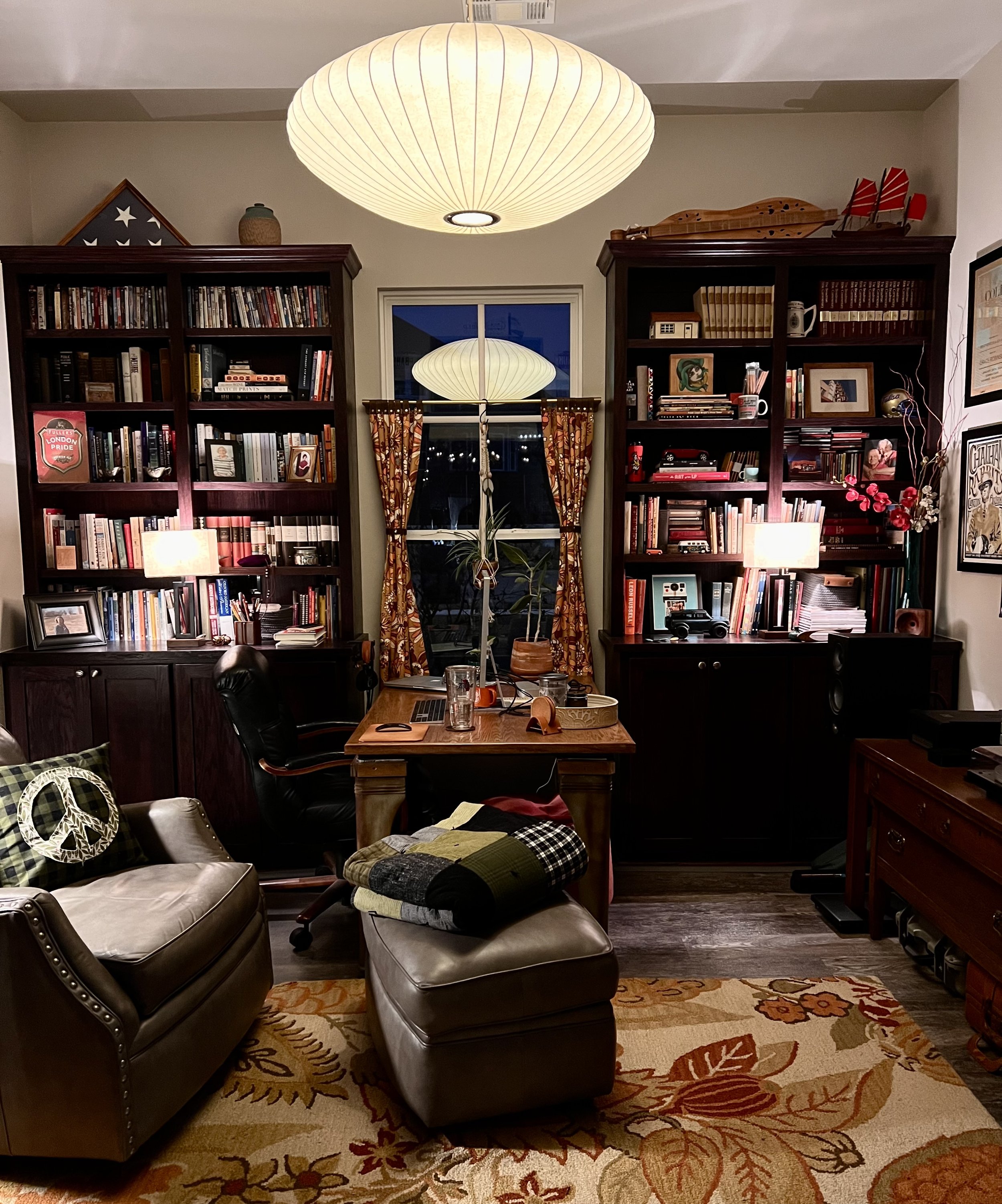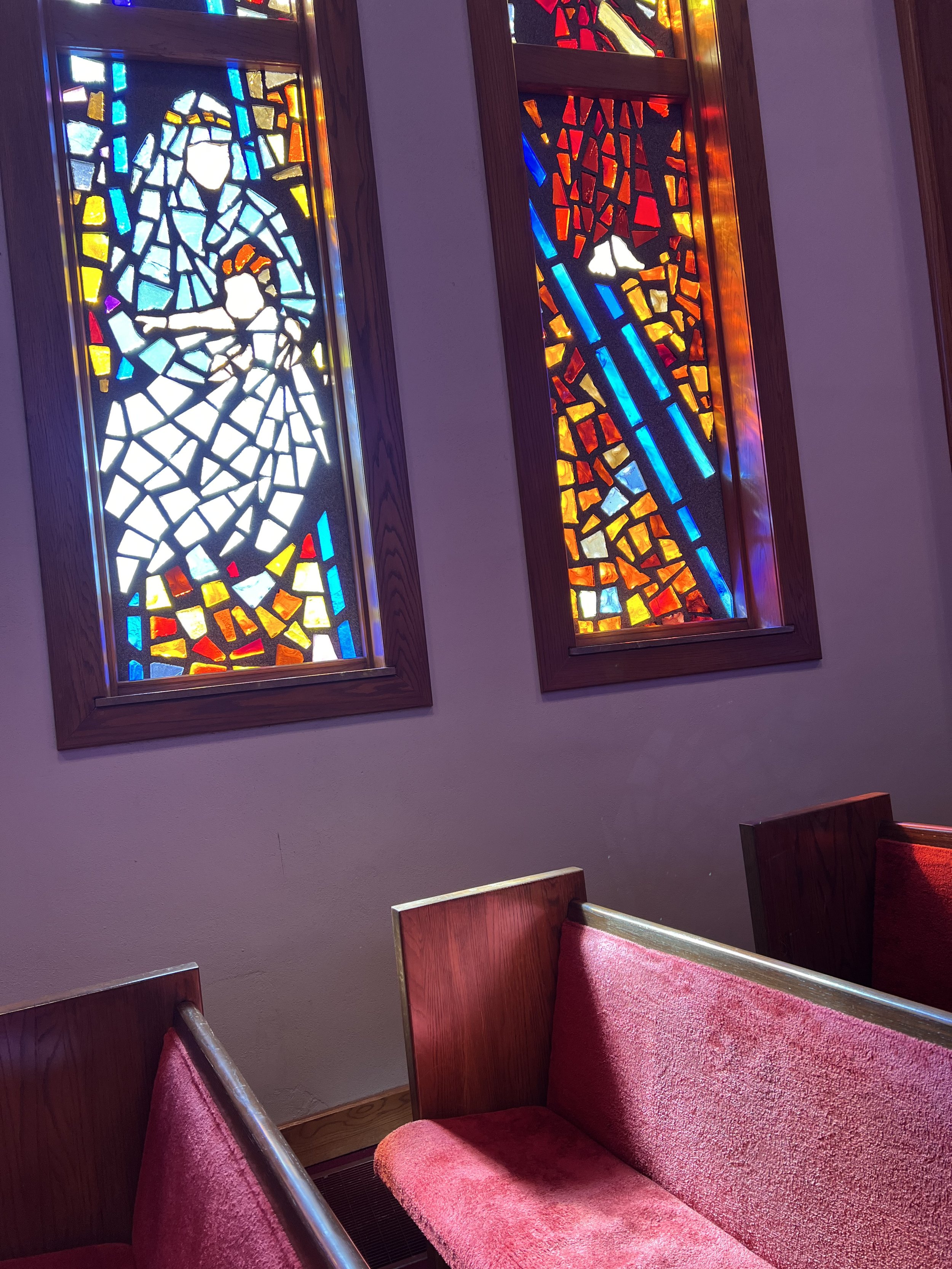PEW PEW PEW
/IN THE CHURCH tradition I grew up in we didn't have reserved seats per se. There were no lettered rows and numbered seats like you would find at a concert or ballgame. But make no mistake: seats in a church have been claimed, if only by a binding understanding that says: this is the pew where I sit, always have, always will.
There may not be a rational explanation for someones seat choice like Sheldon's place on the couch in the apartment he shared with Leonard. Sheldon placed this location "in a state of eternal dibs". When Leonard questions him, he says: "Cathedra mea, regulae meae. That's Latin for 'my chair, my rules'".
As Sheldon explains to Penny, "In the winter that seat is close enough to the radiator to remain warm, and yet not so close as to cause perspiration. In the summer it’s directly in the path of a cross breeze created by open windows there, and there. It faces the television at an angle that is neither direct, thus discouraging conversation, nor so far wide to create a parallax distortion, I could go on, but I think I’ve made my point."
In one episode he even establishes his seat by putting it in mathematical terms: "In an ever-changing world, it is a single point of consistency. If my life were expressed as a function on a four-dimensional Cartesian coordinate system, that spot, at the moment I first sat on it, would be (0,0,0,0)."
While not that extreme, I do have a mostly unspoken claim on a few seats, I would say they are mine; but I share (if necessary).
There are two places to sit in my little study at home. One is an extremely comfortable gray leather swivel rocker and ottoman. This is where I watch movies, sports, reruns of Big Bang Theory, Seinfeld, and Frasier. I also sit there to listen to my lovely HiFi system. I read in that chair and take wonderful afternoon naps. The other chair is a black leather office chair. It was going to be cast out from the office I used at work, so I took it home when I retired. It's in rough shape but after years of sitting there it fits my backside like hand and glove (not O.J.'s though). It's here at my desk that I read the news, watch YouTube videos, and write: things like this blog post which I'm typing right now. Here's a photo.
Back to church. I too, have a certain spot on a certain pew there. Here's a photo of where I sit.
This spot is special to me for several reasons: Those beautiful stained glass windows are on the south side of the building. This time of year the tilt of the earth at the time of our morning service sends warm sunlight in. The windows around the sanctuary are a timeline of the life of Christ. Obviously this window represents the infant--the early days of The Light, the Word become Flesh.
At our church our hope is still there: in that message, and like the light that breaks through that colored glass, that message is the one that will change the world. I don't pretend to speak for our church, the congregation or the people who compose it. But, in the sermons and songs I hear, in the numbers of people who humbly give and serve, Christ is still alive and my hope is there. I fear that some have given up on the Good News to bring peace, to change the world. So, they've chosen instead to align with a religion of political power. I'm glad I have a place in a church with light and enlightenment, where an open mind is not something to condemn but to celebrate.






